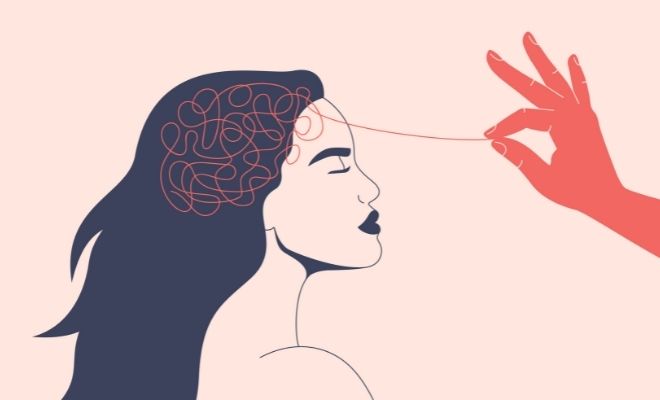We spend a good part of the day at work and it is one of the factors that most determine our quality of life. Having a job is of vital importance and, although it may seem secondary, being comfortable in that job is also secondary. It is true that not everyone gets the job of their dreams, but you cannot live if every day you feel like you are going to hell. And between one situation and another, we can find ourselves with a growing problem that is work anxiety. Know what it is? Maybe you are suffering from it right now? Anxiety or work stress exists and its consequences extend to other areas of life.

What is work anxiety?
We would like to be able to compartmentalize each area of life, keep them separate and not contaminate each other. In this way, a bad run at work would not affect us in other areas. We could continue to enjoy leisure time, friends, travel, our mental health and our physical health. But, unfortunately, our life is a compendium of interrelated areas and when one falls apart it seems that the others follow behind.
Anxiety is part of our day to day and especially at work. It does not have to be pathological anxiety, but rather that state of alertness that your work responsibilities produce in you, that tension to achieve your goals and that stress to obtain greater productivity. Keeping that anxiety at healthy levels is positive because it is precisely what keeps us active, but what happens when it gets out of hand?
We insist, the nervousness to do your job in the best way possible, the effort to avoid possible inconveniences that arise in the work environment, the intention to get along with colleagues, the need for your work to be recognized or the commitment to Maintaining some motivation for what you do leads to some nervousness and some stress. And it is normal; there is nothing to be alarmed about.
But there comes a time when all those good intentions turn against you and you begin to notice that everything is going wrong or that it is not going as you would like. The time has come to face up to work anxiety.
How to know if you have work anxiety?
And how do you know if you have anxiety about work or if it is a specific moment in which certain difficulties are overwhelming you? Pay attention to the symptoms of anxiety at work.
You wake up without wanting to go to work. This may seem normal to you, but see if this reluctance is accompanied by a feeling of fear or insecurity because you think you are in for a horrible day. Starting the day with the feeling that it is going to be horrible is quite a self-fulfilling prophecy; I’m sure it will be terrible.
You constantly think about your work, even when you wake up in the middle of the night. The thoughts are negative and can become of the catastrophic type. You will be fired from your job because you are not doing it well, because you do not meet the objectives or because you have been in poor shape lately. Because your boss constantly calls your attention or because you yourself point out your mistakes more than your successes.
You experience all the symptoms of anxiety before you get to work, when you are at work, or when you remember your workday. Lately you have suffered frequent anxiety attacks and you live in a continuous state of emotional discomfort.
You feel unable to do your job. Your opinion of yourself has gone from trusting your abilities to considering you a bad professional. That makes you withdraw, you don’t dare anything and even your relationship with your peers suffers. You do not dare to speak in meetings and you think that everyone realizes that you are worthless.
Psychological symptoms of anxiety at work deserve special attention because they focus on thoughts. Distorted, unreal, obsessive and recurring thoughts. Your job outlook is distorted because you are not comfortable with yourself as a professional. It is time to ask for psychological help.
Causes of work anxiety
Work anxiety doesn’t suddenly come on because you had a bad day or had an argument with your boss. It is a disorder that develops little by little and behind which different causes are hidden. After all, it is about anxiety, a complex problem that will have to be covered from different perspectives.
The origin of your discomfort at work can be in yourself or it can come from the work environment itself. In reality, most of the time it is a combination of both.
Among its own causes (some of them can also become consequences of work anxiety) are low self-esteem, going through a vital crisis, suffering a personal misfortune, self-demand or excessive perfectionism, feeling guilty or living according to the expectations of others. In addition, we cannot forget here specific moments of emotional vulnerability, illnesses or family problems.
And let’s go with the foreign or external causes, which do not arise from you but concern you equally. Work environments are not always safe and we are talking about emotional security. Sometimes, the tension is excessive and does not stimulate but rather impairs productivity. The instability of your job is also one of the most frequent causes of anxiety, as well as an overly demanding and strict boss, working hours that make conciliation incompatible or a lack of definition in your duties.
Mobbing or workplace harassment deserves special attention, although it is not necessary to go that far. A rarefied work environment, with little companionship or too competitive can cause a serious anxiety disorder.
Consequences of work anxiety
The consequences of work anxiety can be said. From being fired to suffering there is a whole range of consequences that you will see every day, among which are:
- Job loss
- Insomnia
- Tiredness or exhaustion
- Demotivation at work and in life
- Unsafely
- Irritability or hypersensitivity
- Muscular and gastric discomfort
- Lack of concentration
- Low self-esteem
- Family problems
- Eating disorders
- Depression
How to overcome anxiety at work?
With this daunting outlook, it is best to contact a psychologist if you think you may be suffering from anxiety at work. It Regain your confidence in yourself and feel capable and valuable in your work, but there are some things you can start doing for yourself.
We have to say it: healthy eating and physical exercise are among the tasks to be carried out to overcome anxiety, whatever the type. So do not expect more. But there are many other tips such as learning to manage time realistically, being less demanding of you, making decisions again and addressing problem-solving strategies.
As we say, a psychologist has to help you overcome about work. But there is something very important that is the last thing we think about when we are suffering from this problem and that is that we must rest. As you read, the best recipe to work better is to rest. And have fun, and do things you like and fill your life until you feel it so full that work difficulties fade into the background and you can deal with them without thinking it’s the end of the world.






